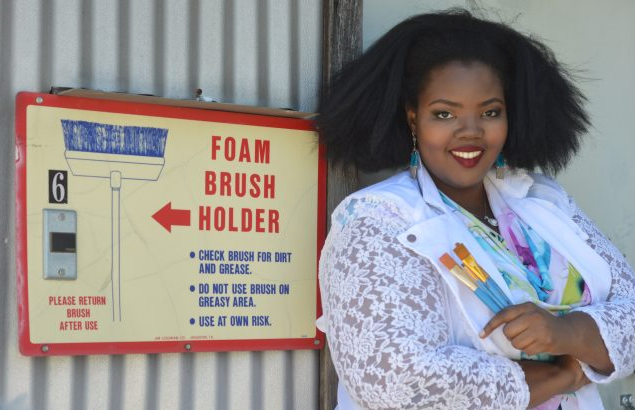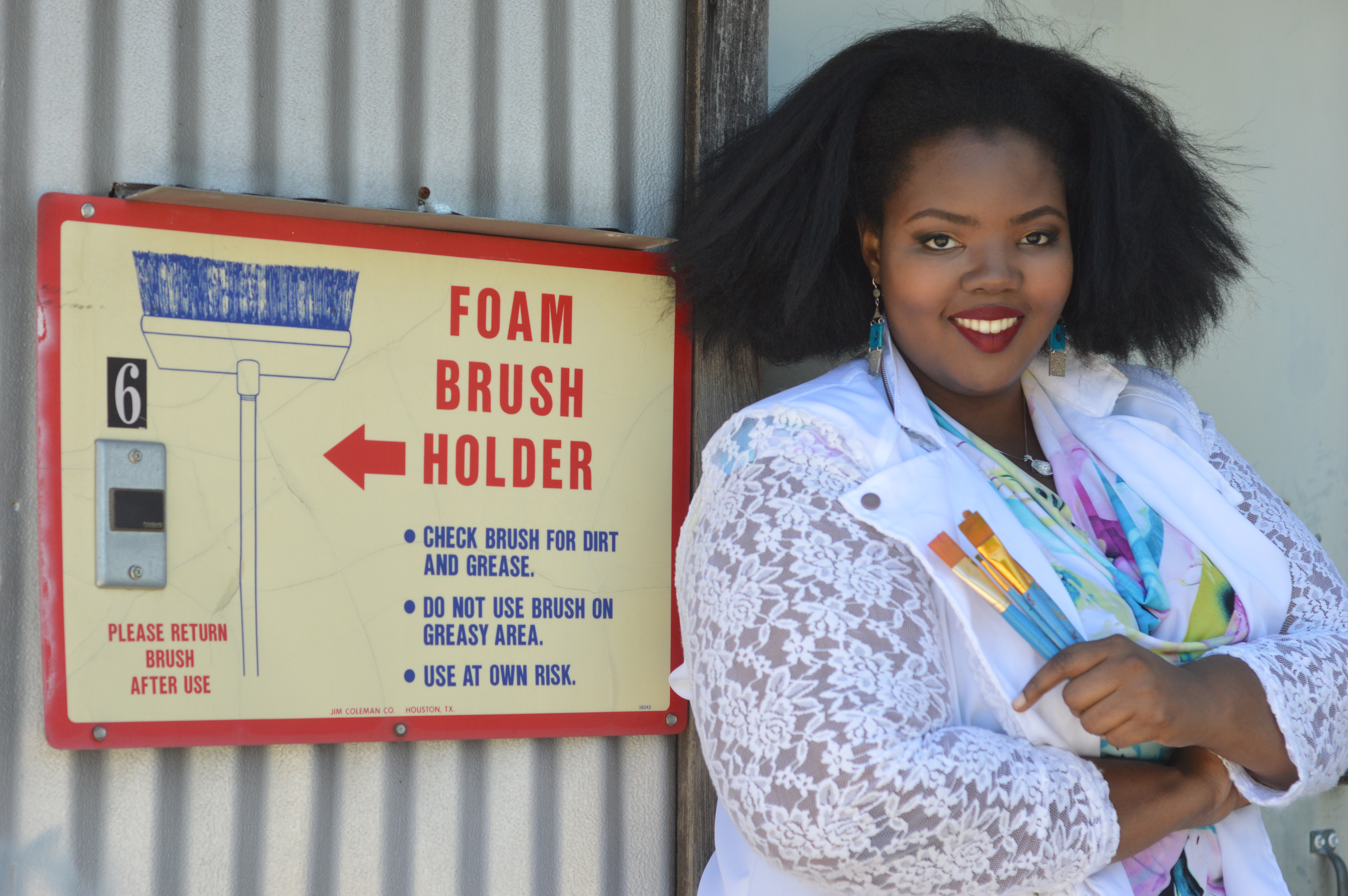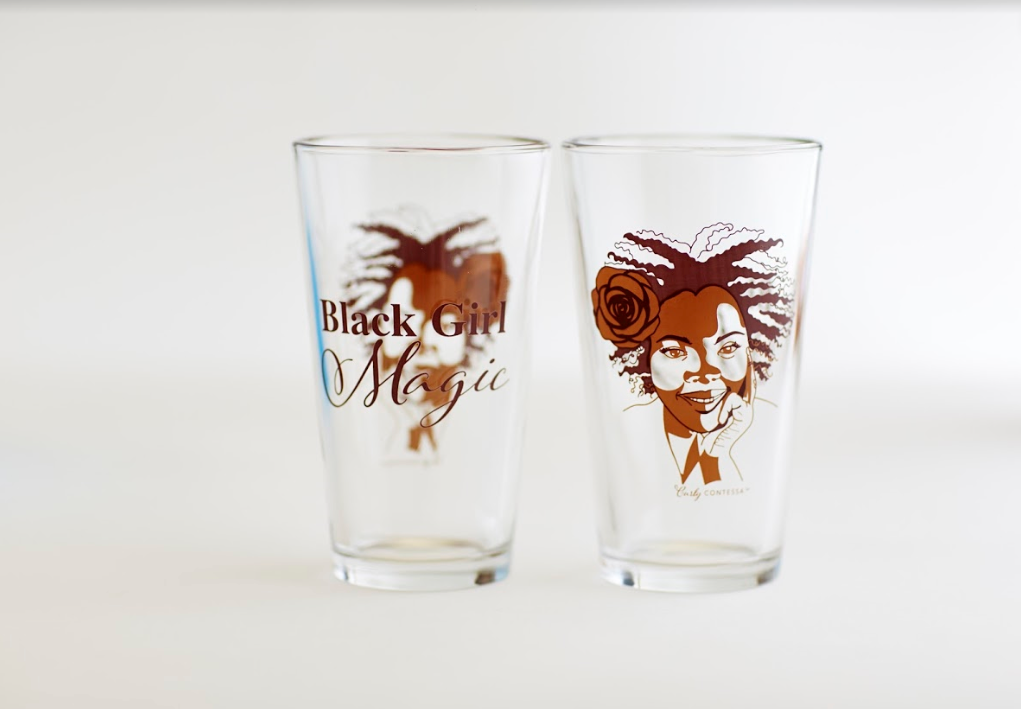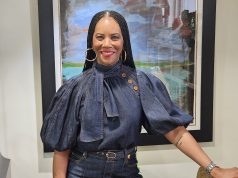By Jasmine Shaw
For the Birmingham Times
Growing up in Ensley as one of five children, Kristin Farmer had an unlikely introduction to the business world.
“Mattel released a Working Woman Barbie in 1999, and that’s when I knew I was going to be my own boss,” she said. “The doll came complete with a briefcase and laptop, and she was wearing a power suit complete with pearls. I now own an identical suit.”
Farmer, 31, not only owns the suit but also owns her business—the culturally focused giftware line Curly Contessa. Founded by Farmer in November 2017, the brand has quickly become the curly girl’s go-to guide for gifting.
“Curly Contessa is needed because representation matters,” she said. “It’s important for women of color to be able to celebrate ourselves and our tribe.”
The line debuted with Naturalistas Wrapping Paper and has steadily grown to introduce wine and pint glasses in 2018 and Let it Snow sleep apparel in 2019. Identifying her brand as one that aims to uplift an often underrepresented market, Farmer proudly displays the elegance and versatility of black women’s hair on all of her products.
“Curly Contessa is the matriarch on curly tresses. She is a boss babe [that] marches to her own drum,” said Farmer. “I am an online boutique.”
No Doubts
Farmer, who grew up scribbling doodles across the walls in her Ensley home, combines her natural artistic abilities with the technical skills learned while earning a Bachelor of Fine Arts degree in graphic design from Samford University.
“I learned how to produce a product and market it in my undergrad graphic design classes,” she said. “There has never been a doubt in my mind that I would be successful.”
Despite steady growth and a creative niche, Farmer still finds it challenging to secure vendor opportunities and integrate her brand into local markets.
“Birmingham doesn’t have a black epicenter [similar to Tulsa, Okla.’s, Greenwood Avenue, better known as Black Wall Street, a centralized location filled with black-owned businesses that helps sustain the surrounding community through economic growth],” she said. “A black epicenter would allow for more collaboration for small minority businesses. It would provide an array of resources from marketing outlets and getting products in front of a black audience. Plus, [there would be] shelves to stock products.”
Team Support
Describing herself as reserved throughout childhood, Farmer considers Curly Contessa an outlet of personal expression.
“At 19, I was diagnosed with depression and anxiety. At 29, however, a new team of doctors discovered that I was bipolar II, [a type of bipolar disorder characterized by episodes of depressive and hypomanic, or intense elevated, moods], with a borderline personality disorder,” she said. “For 10 years, I had been prescribed the wrong medications, which caused rapid mood swings and deep depressive states. Some days rolling out of bed seemed hard. Although it was a struggle, family, friends, and mentors have helped me get over the hump. I consider myself lucky because many people have no one.”
With a thriving business Farmer is grateful to have had her siblings—Kamesha Smith, Reginald Smith, Kemberly Smith, and Kelsey Farmer—cheering her on.
“They support me big time. They sow into my dreams as well as provide me with a place to nap on the weekends when I need to escape my creative universe,” she said. “Curly Contessa was started to celebrate the milestones that I have overcome with all the craziness in between. I also wanted to celebrate the loved ones who carried me through to the other side. I couldn’t find anything to represent me or my circle of support, so I decided to make my own gifts with my illustrations.”
Farmer’s business has been sustained because of her pursuit of industry knowledge and wisdom gleaned from mentors, she said, adding that she has also taken advantage of Birmingham’s rich entrepreneurial network to gain access to capital and strategic-planning resources.
“[The] Small Business Development Center network [in Birmingham] gave me sound advice and helped me set realistic goals; they helped to connect me with different resources and identify potential local partnerships,” she said. “Urban Impact [economic development agency] connected me with funding resources. And Sabre Finance [a local nonprofit lender] financed my holiday marketing campaign by providing me with a small-business loan”.
Experience
Farmer, who considers herself a weekend warrior, said experience was another teacher.
“My first year was nuts. … [I was] staying up all night for days shipping orders,” she said. “[Running this business] isn’t easy. It requires a lot of diligence and thinking ahead of the curve. Curly Contessa gives me a reason to keep pushing when I’m down; she is a catalyst to celebrate myself.”
Farmer now automates key aspects of her business to keep up with demand. She outsources some of the more labor-intensive responsibilities, such as shipping, and utilizes apps to help her save time when completing highly detailed tasks.
“My company grew like wildfire, which was a blessing but also a nightmare,” she said. “I was shipping 20 to 40 orders a night, so the second time around I looked into drop-shipping options.”
Based on her experience, Farmer offers the following advice to other small-business owners: “Utilize all of the settings in programs you are already using, like MailChimp’s Abandoned Cart feature, through which emails and texts are sent to visitors who made it to checkout but didn’t purchase anything. Also, track every penny and use all-in-one small-business invoicing and accounting solutions like FreshBooks.”
As an entrepreneur, Farmer believes that failure is the key to success. She embraces the idea of failing fast and hard in order to rebound from setbacks with a greater appreciation for the lessons learned.
“Once something goes wrong or not quite how you expected, you begin to think, ‘There has got to be another way,’” she said, adding that she has set her sights on bringing Curly Contessa to retail shelves within the next five years.
Farmer added, “Birthing Curly Contessa helped me find myself. I am blessed enough that my customer base tells me what they want to see next, but that isn’t always feasible. I am working with a business coach to help me work toward my future goals.”
For more about Curly Contessa, visit curlycontessa.com.










